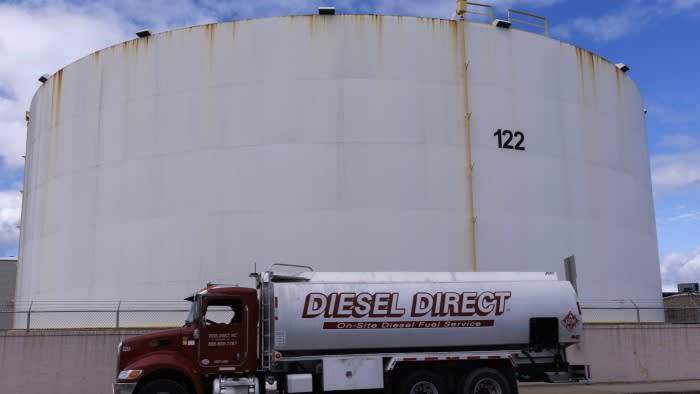Stay informed with free updates
Simply sign up to the Oil myFT Digest — delivered directly to your inbox.
Oil prices sank sharply on Tuesday, falling by more than 5 per cent on worries over the Chinese economy and extending the recent series of wild swings to hit the market.
Benchmark Brent crude fell 5.4 per cent to $76.56 a barrel after rising by 10 per cent in the four trading days following Iran’s missile strike on Israel on October 1.
The move was triggered by a lack of new spending commitments from Beijing, following more than a week of frenzied speculation that significant economic stimulus measures were on the way, sparking concerns over the strength of demand from the world’s second-largest economy and forcing traders to exit their bullish bets.
“It’s an overbought market correcting,” said Jorge Montepeque at Onyx Capital Group. After falling below the $70-a-barrel threshold in September on worries over the Chinese economy and the prospect of Opec increasing its production in December, the tensions in the Middle East, coupled with a promise of stimulus from Beijing, re-energised the market, he said.
“Prices rallied on a combination of buying from day traders, retail and professional traders. The latter group had scoped out the opportunity created by too many shorts and pounced on them,” he said. But with Israel yet to counter attack Iran, and in the absence of strong fiscal measures by China, the “market will deflate again”.
In a sign of lowered tension over a potential Israeli attack on Iran, TankerTrackers.com said it had spotted three supertankers loading an estimated 4.7mn to 4.9mn barrels of oil at Iran’s Kharg Island oil terminal. Previously, ships had moved away from the terminal, fearing that it might be hit by Israel.
Samer Mosis, head of fundamentals at Energy Aspects, also said traders were taking profits and added that the strengthening of Hurricane Milton in Florida could reduce demand for petrol in the state. “Given the lack of damage to refineries or upstream platforms, the hurricane will probably be net bearish for oil markets by hurting demand,” he said.
Giovanni Staunovo, an analyst at UBS, said he expected prices would stabilise around current levels until there was clarity over Israel’s reaction to Iran.
“I do not see the geopolitical risk premium disappearing. If Israel attacks, we do not know whether Iran will counter attack, so that’s a reason to keep the risk premium in the price,” he said.


